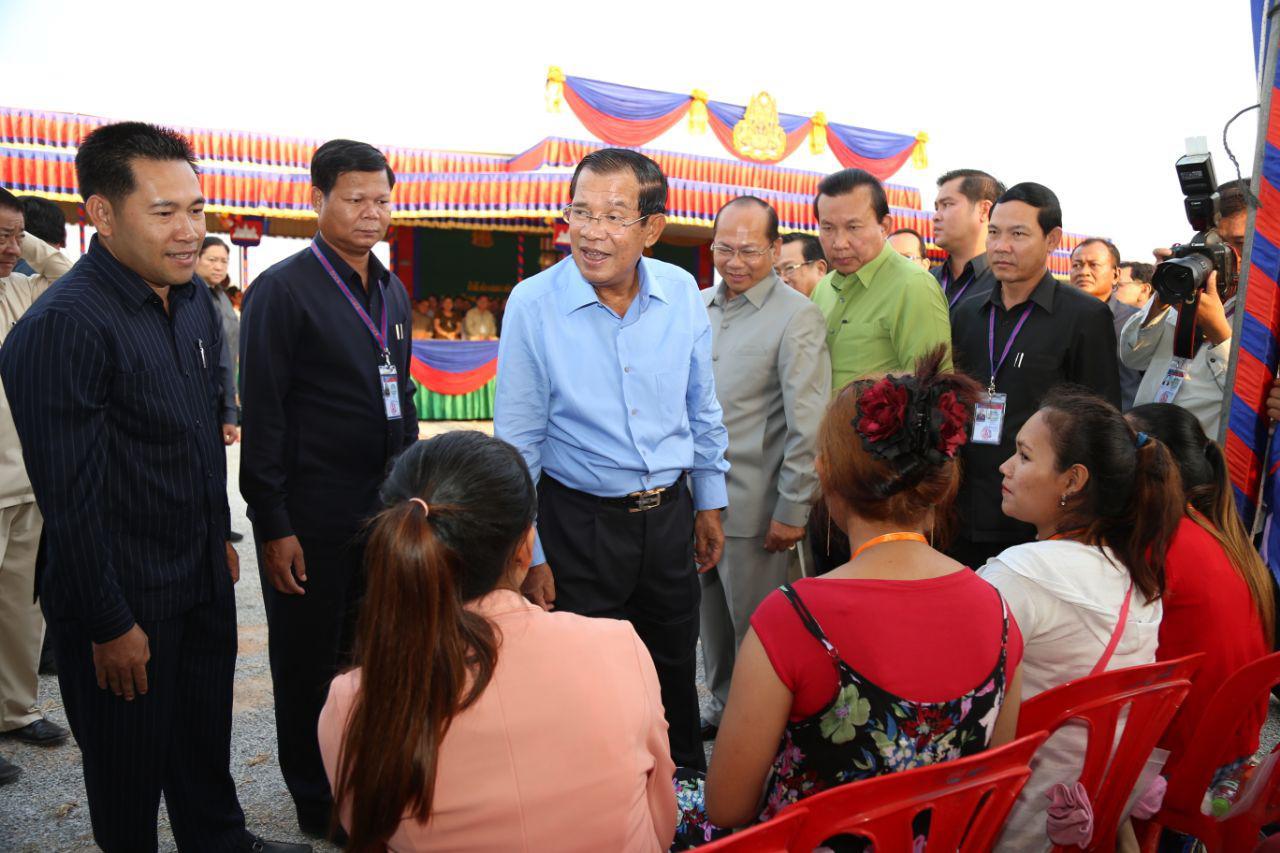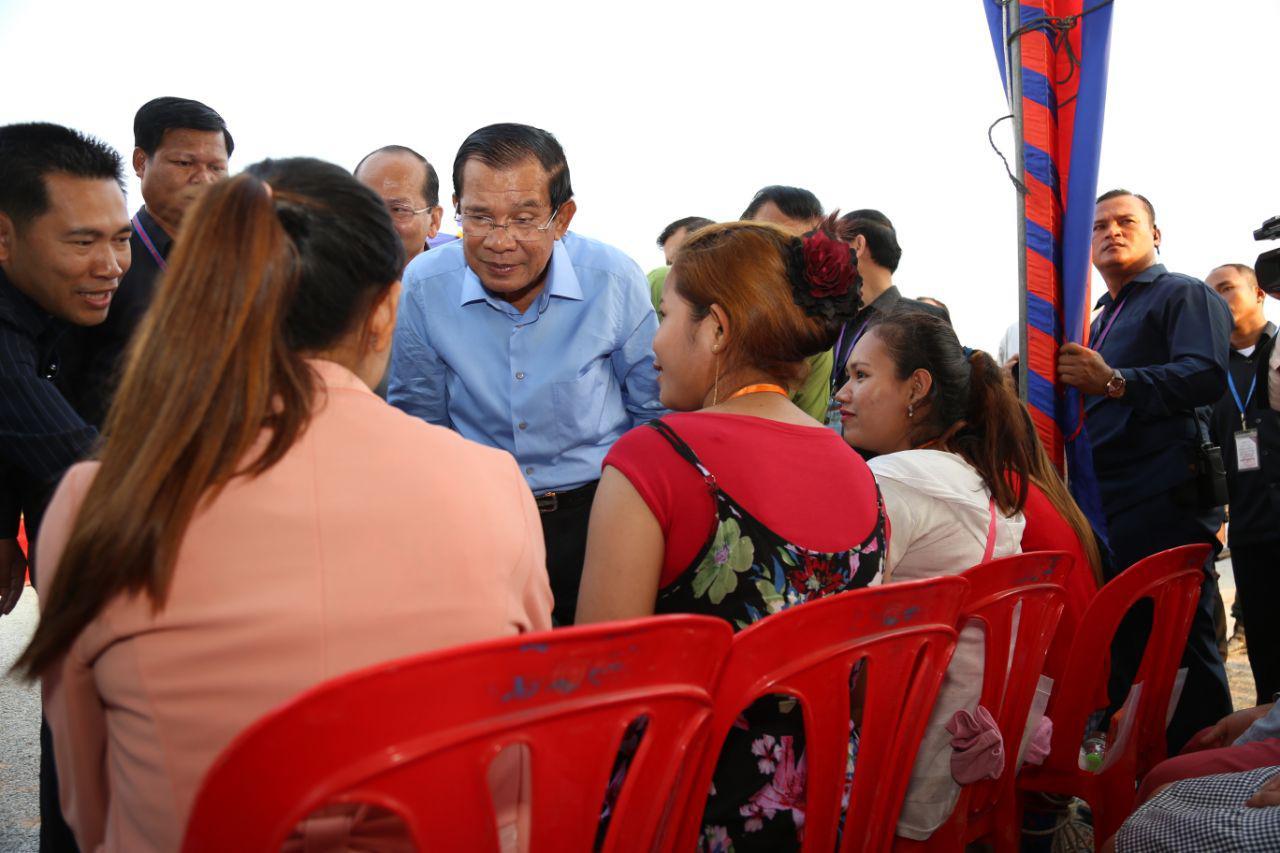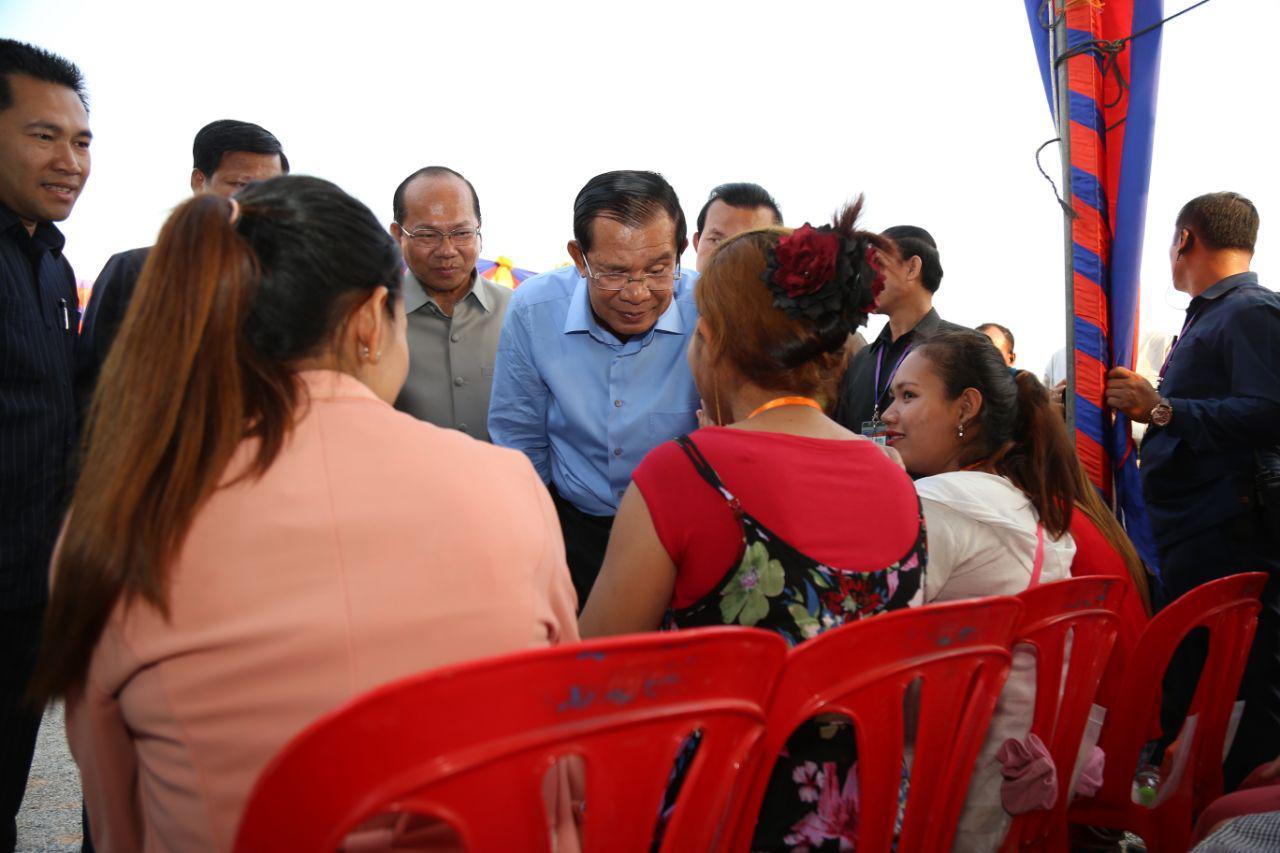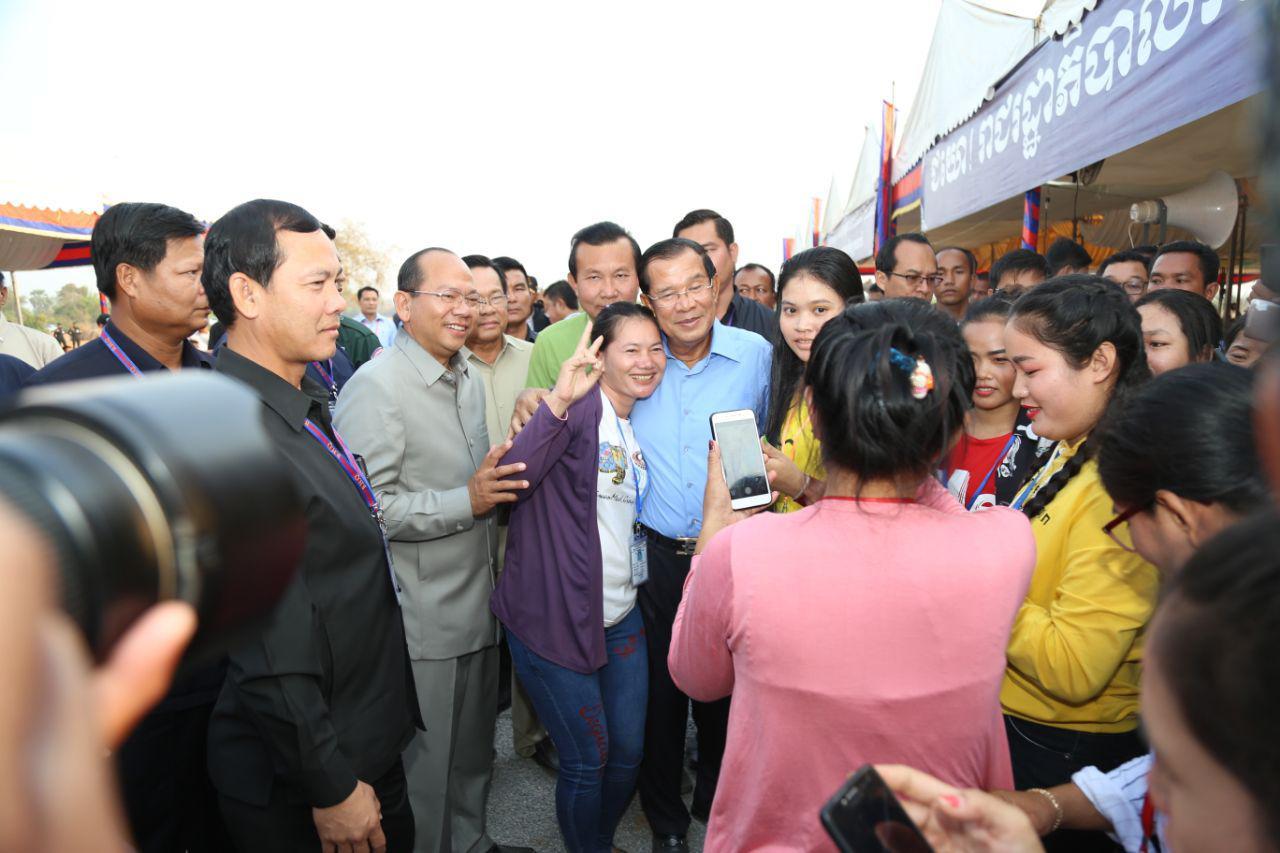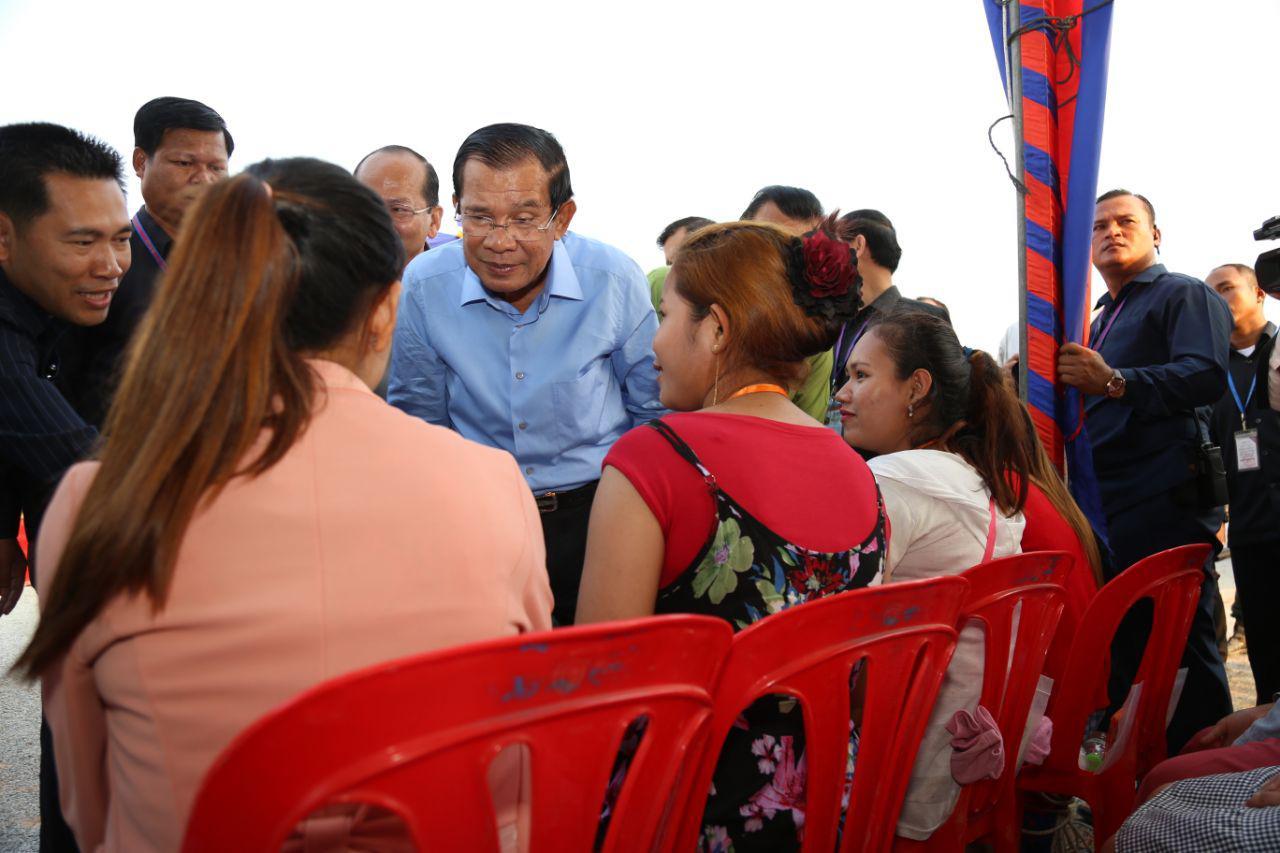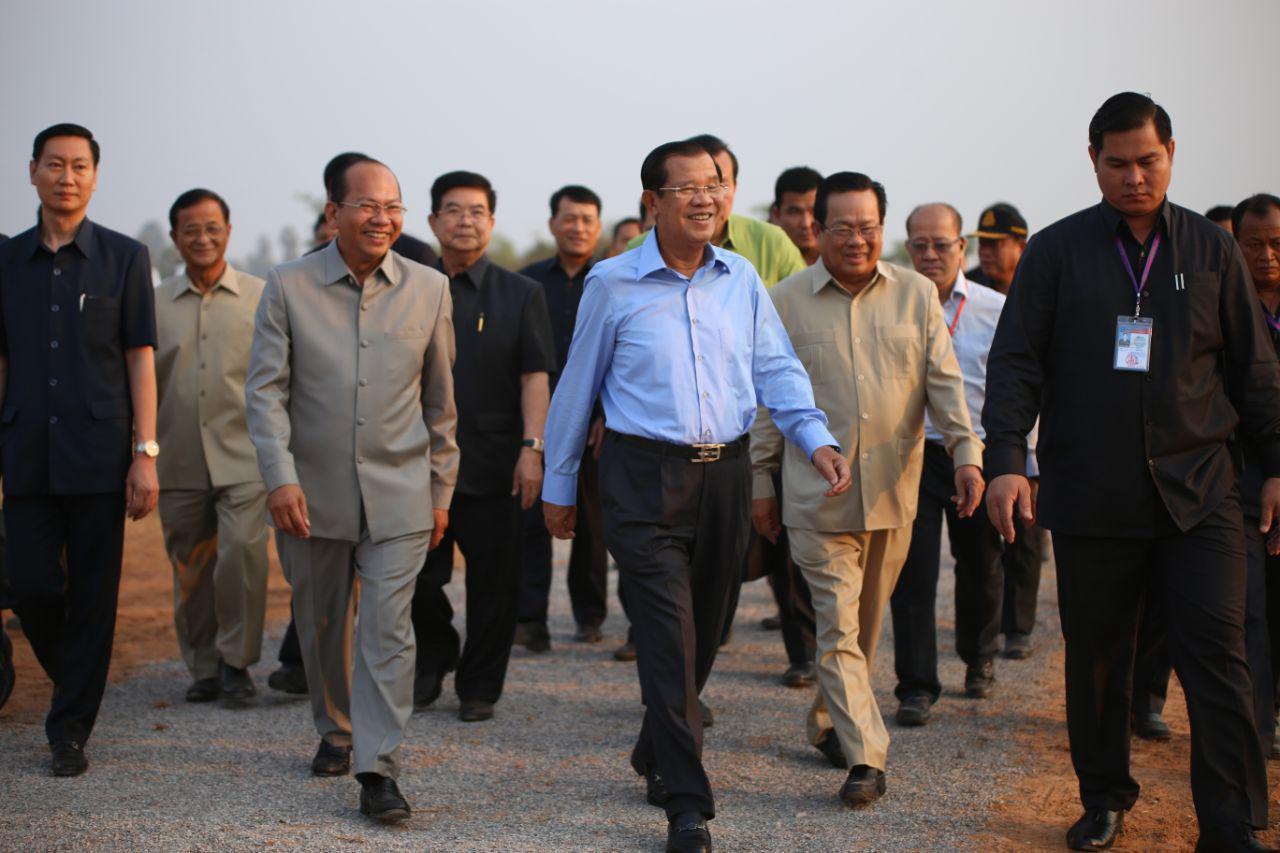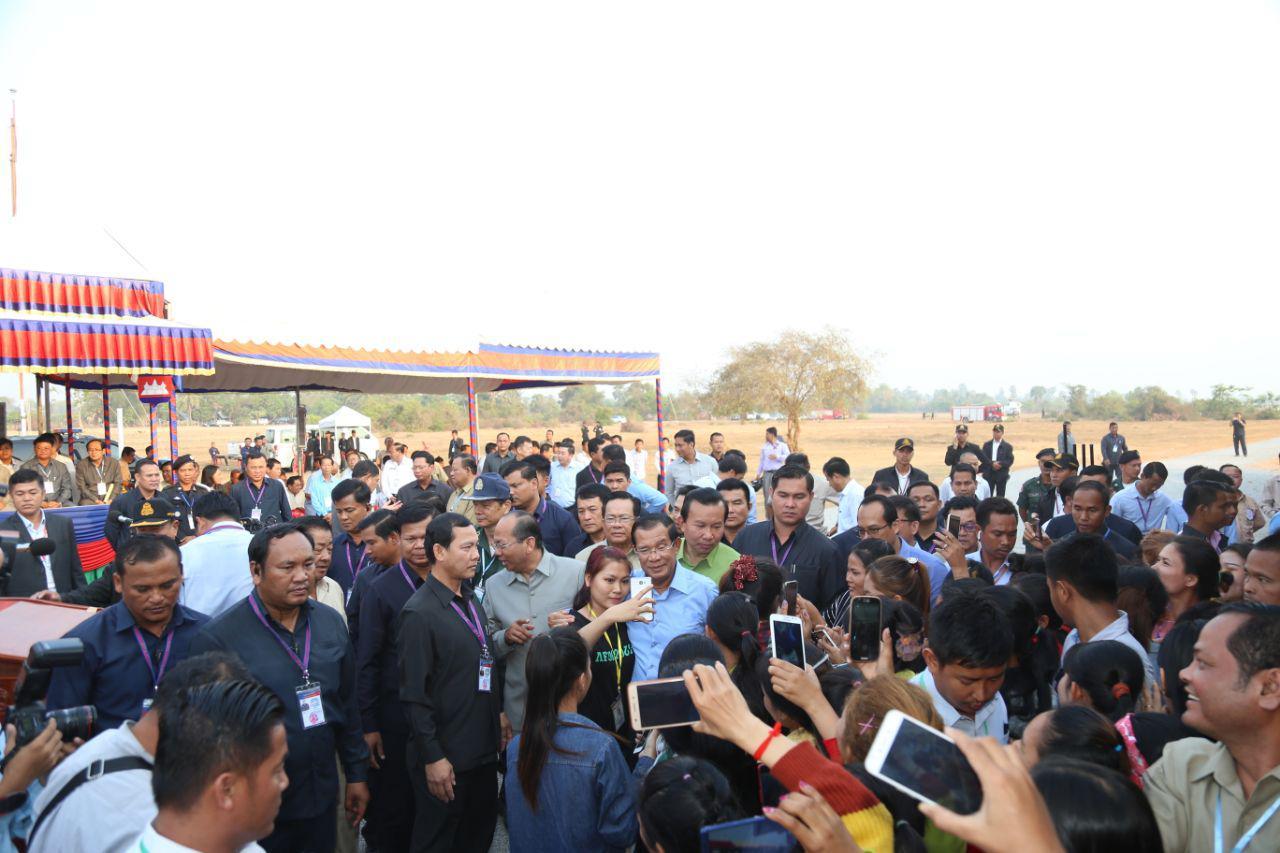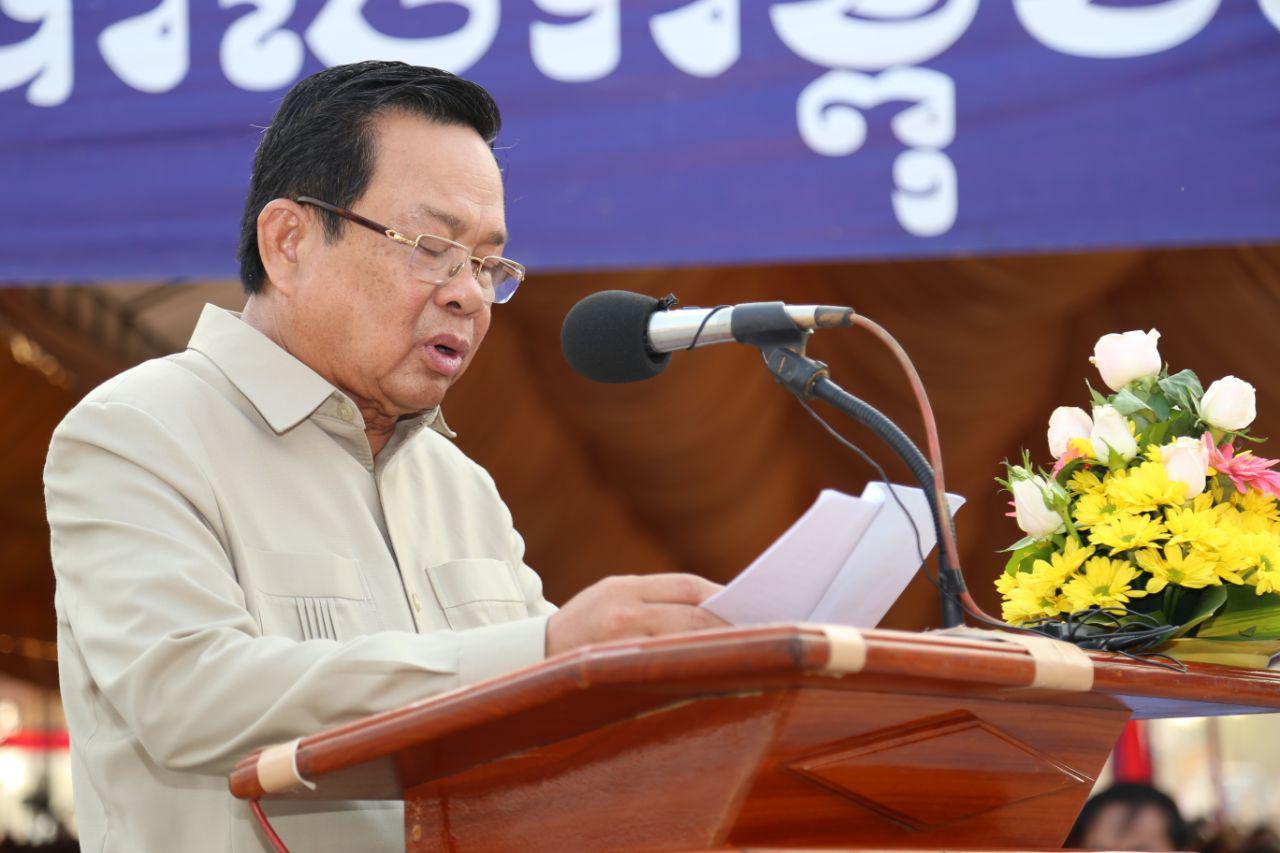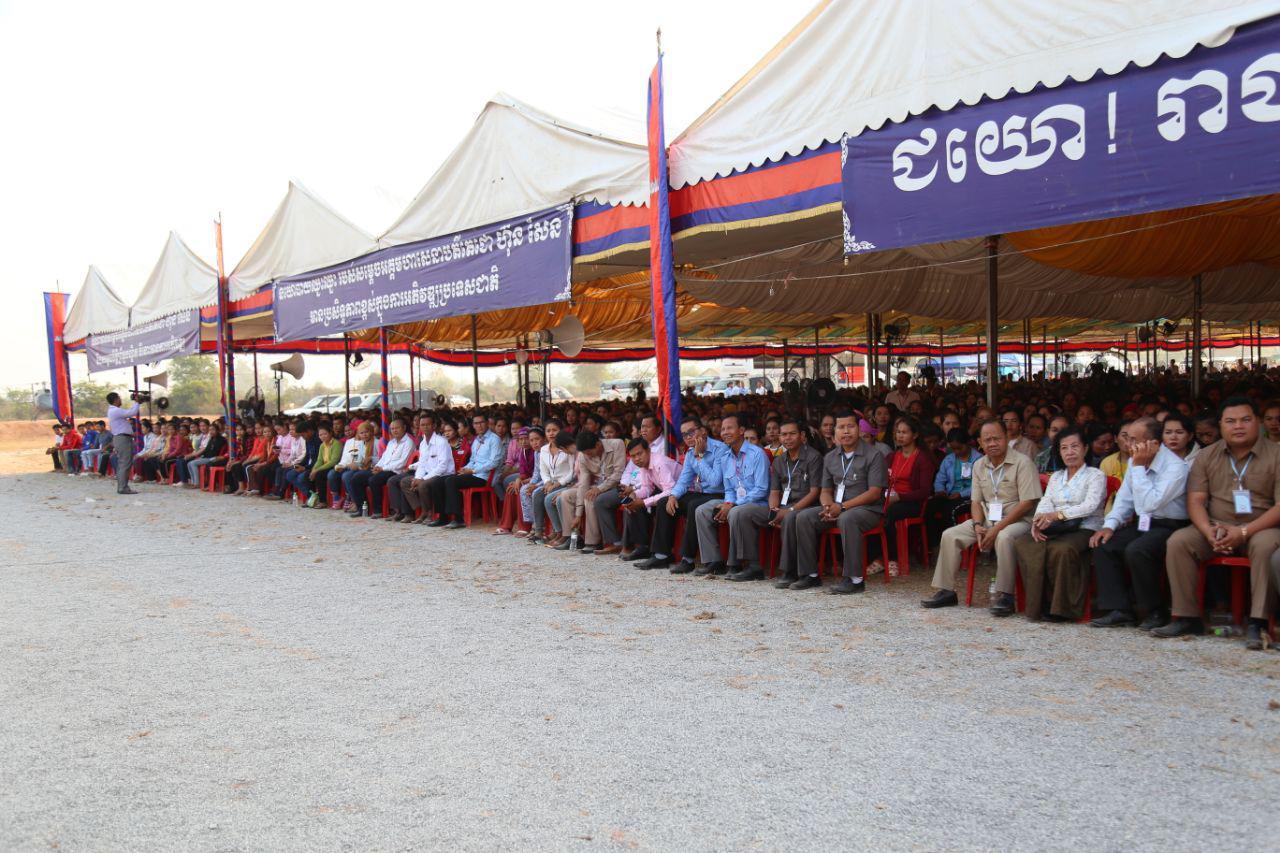Pursat (FN), March 20 – Cambodian Prime Minister Hun Sen announced Wednesday that he will lay out a new plan to tackle rail transport issues, speaking before tens of thousands of workers in Pursat province, west of Cambodia.
"We look into rail transport problems as part of economic reforms, not for EBA. We need to reform railway system, as this sector stuck without development,” said Prime Minister Hun Sen.
The Premier is hopeful that with reforms on rail transport combined with road and water transportation, Cambodia’s economy will prosper.
Cambodia has over 600 km rail network, consisting of two lines originally constructed during the French Indochina period. Rampant civil wars in the 20th century put the rail services on hold. As of 2016, Cambodia launched freight and limited passenger services from Phnom Penh to Sihanoukville, the coastal province in southwest.
The 386-kilometer Phnom Penh-Poipet (Cambodia-Thai Border) railway link was completed in 1942 but was destroyed in the 1970s during the Cambodian civil war.
The 48-kilometer from Poipet to Sisophon re-operated on 4 April 2018 and the 65-kilometer from Sisophon-Battambang launched on 29 April 2018.
The 166-kilometer stretch of railway that connects Pursat to Phnom Penh also resumed in late July.
The railway link, completed in late February, adds a new transportation route to the hitherto road-based Southern Economic Corridor, which links Bangkok via Phnom Penh to Ho Chi Minh City in southern Vietnam.
In order to promote competitiveness, economic diversification, and business environment in Cambodia, the Royal Government of Cambodia (RGC) has decided to introduce in-depth reforms to reduce operating costs.
Prime Minister recently highlighted economic reforms, which begin with the fifth principle – the surgery – aims to eliminate corruption. The government also works on trade facilitation and fiscal incentives, including reducing input costs and customs procedures; eliminating the 40-year operation Kampuchea Shipping Agency and Brokers (KAMSAB); reducing cost of scanning containers; lowering electricity price; and eliminating Cambodia Import-Export Inspection and Fraud Repression Directorate General (CAMCONTROL) of the Ministry of Commerce at all land and water borders. These are factors hopeful to attract international investors and businesspeople to invest in the kingdom.
